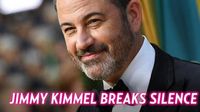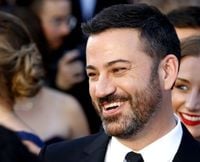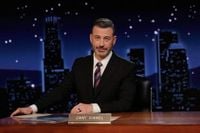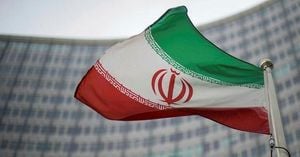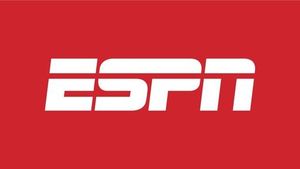After a tumultuous week of controversy, debate, and high-stakes corporate maneuvering, Jimmy Kimmel returned to his familiar late-night slot on ABC’s "Jimmy Kimmel Live!" on September 23, 2025. His reinstatement followed a weeklong suspension imposed by Disney, the network’s parent company, in response to remarks Kimmel made about the fatal shooting of conservative activist Charlie Kirk. The saga has since spiraled into a flashpoint for questions about free speech, government overreach, and the influence of corporate interests on American media.
The controversy began on September 15, when Kimmel’s monologue addressed the tragic killing of Charlie Kirk at Utah Valley University. Kimmel’s comments, which criticized the reaction from MAGA supporters and former President Donald Trump, quickly drew fire from conservatives and Kirk’s supporters. In his return to the air, Kimmel clarified his intent: “It was never my intention to make light of a murder of a young man. I don’t think there’s anything funny about it,” he told viewers. “This show is not important. What’s important is that we get to live in a country that allows us to have a show like this.” According to reporting from Deadline and other outlets, Kimmel went further, warning that "a government threat to silence a comedian the president doesn’t like is anti-American."
Disney’s official explanation for the September 17 suspension cited “ill-timed” and “insensitive” remarks, stating, “Last Wednesday, we made the decision to suspend production on the show to avoid further inflaming a tense situation at an emotional moment for our country.” The move, however, was met with immediate backlash—not just from Kimmel’s supporters, but from a broad coalition of free speech advocates, lawmakers, and industry professionals.
Behind the scenes, the situation grew even more complicated. According to a letter sent on September 25 from lawyers representing the American Federation of Teachers, the AFL-CIO, and Reporters Without Borders to Disney CEO Bob Iger, there is "a credible basis to suspect that the Board and executives may have breached their fiduciary duties of loyalty, care, and good faith by placing improper political or affiliate considerations above the best interests of the Company and its stockholders." The letter, reported by Deadline and Semafor, demanded that Disney provide internal books and records within five business days, warning that failure to comply could result in legal action, including a derivative lawsuit on behalf of shareholders.
At the heart of these accusations is the suggestion that Disney’s decision was influenced by political pressure. The letter points to threats from Federal Communications Commission (FCC) Chairman Brendan Carr, who, as reported by multiple outlets, suggested possible license revocation for ABC affiliates that continued to air Kimmel’s show. Carr’s comments were echoed by major ABC affiliate owners, Nexstar Media Group and Sinclair Broadcast Group, both of which refused to air "Jimmy Kimmel Live!" following the controversy. Sinclair, the nation’s largest ABC affiliate group, stated it would not air the show until “formal discussions are held with ABC regarding the network’s commitment to professionalism and accountability.” Nexstar’s broadcasting president, Andrew Alford, declared, “Mr. Kimmel’s comments about the death of Mr. Kirk are offensive and insensitive at a critical time in our national political discourse, and we do not believe they reflect the spectrum of opinions, views, or values of the local communities in which we are located.”
The financial ramifications for Disney were immediate. The company’s stock suffered a $4 billion loss in value following the abrupt suspension, according to the shareholder letter. While Disney did not respond to requests for comment, the threat of further legal action—and the possibility of a prolonged public relations crisis—likely contributed to the company’s decision to reverse course and bring Kimmel back on air after a week of behind-the-scenes negotiations.
Public support for Kimmel was swift and vocal. On September 23, the American Civil Liberties Union published an open letter backing the comedian, signed by over 400 artists, including Jamie Lee Curtis, Julia Louis-Dreyfus, and Martin Short. ACLU Executive Director Anthony D. Romero stated, “We now find ourselves in a modern McCarthy era, facing exactly the type of heavy-handed government censorship our Constitution rightfully forbids. The silencing of Jimmy Kimmel and jawboning of media outlets through lawsuits and threats to their licenses evoke dark memories of the 1950s.”
Political leaders across the spectrum weighed in as well. Southland Democratic lawmakers gathered in Hollywood to denounce Kimmel’s suspension, with Rep. Laura Friedman warning, “This administration’s actions could threaten speech for both conservatives and liberals. This cuts all ways.” Even Republican Senator Ted Cruz, often at odds with his Democratic colleagues, reportedly described the FCC’s actions as “incredibly dangerous.” Los Angeles Mayor Karen Bass issued a statement declaring, “The attempt to censor Jimmy Kimmel and free speech in America has failed. Systematically, this administration has attempted to shred the very fabric of freedom and liberty in this country by targeting and censoring voices that disagree with the president.”
President Trump, for his part, made his feelings known on his social media platform, Truth Social. He wrote, “I can’t believe ABC Fake News gave Jimmy Kimmel his job back. The White House was told by ABC that his Show was cancelled! I think we’re going to test ABC out on this. Let’s see how we do. Last time I went after them, they gave me $16 Million Dollars. This one sounds even more lucrative.” Earlier, he had celebrated Kimmel’s suspension, calling it “Great news for America” and deriding Kimmel’s ratings.
As the debate raged, Kimmel himself broke his silence on the morning of his return with a subtle Instagram post featuring a photo alongside the late TV producer Norman Lear, a longtime collaborator and free speech advocate. The post, which drew thousands of supportive comments from fans and celebrities alike, was widely interpreted as a nod to the importance of free expression—a theme that would surface in Kimmel’s monologue that night.
Despite his return, "Jimmy Kimmel Live!" remains off the air in markets served by Sinclair and Nexstar, who continue to air alternate programming while holding out for what they describe as accountability and professionalism from ABC. The fallout has sparked a broader reckoning in the entertainment industry about the boundaries of speech, the role of government oversight, and the responsibilities of media corporations to both their audiences and shareholders.
Amid this storm, Kimmel’s show marches on, still a platform for comedy, commentary, and controversy—perhaps now more than ever a symbol of the ongoing struggle over free speech in American public life.
